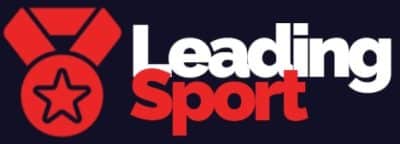Deploy Folding Table of contents
Sport has always been a popular pastime, but it is much more than that; it is a powerful tool that can be used to unlock success in almost any circumstance. It is a well-known fact that sport can have positive effects on physical, emotional and psychological health. It has also been proven that being sporty can lead to increased confidence, improved self-esteem and even greater success in other aspects of life. From business executives to students, sport can provide real benefits to individuals of all ages and backgrounds.
Harnessing the Power of Sports to Achieve Excellence
In order to make the most of sports, individuals must first understand the power of sport and how it can be harnessed to achieve excellence. It is important to understand that sports are not only a way of keeping fit but also a way of learning essential skills such as teamwork, discipline and perseverance. When these skills are applied in other areas of life, they can help to unlock success. Additionally, sports can be a great source of inspiration and motivation when it comes to achieving goals. Through hard work, dedication and determination, individuals can unlock their full potential and reach remarkable heights.
Exploring Sport as a Tool for Success
It is essential to understand that sport is more than just physical activity; it is also a powerful tool that can be used to unlock success. By taking part in all aspects of sport – from training and competing, to coaching and learning – individuals can gain confidence, self-belief and an increased sense of accomplishment. Additionally, individuals can also learn important life skills such as decision-making, problem-solving and leadership. These skills are invaluable for achieving success in any area.
Realizing the Benefits of a Healthy Lifestyle
It is also important to understand the benefits of leading a healthy lifestyle, which can be achieved through sport. By taking part in regular physical activity, individuals can improve their overall health and wellness, which in turn can lead to improved mental and emotional wellbeing. Additionally, being physically active can help to reduce stress and anxiety, increase energy levels and even improve memory and cognitive function. All of these benefits can help to unlock success in both personal and professional life.
Overcoming Challenges Through Athletic Endeavors
Sport is also a great way to push boundaries and overcome challenges. Whether it is taking part in a new sport, joining a team or competing in tournaments, individuals can challenge themselves in a safe and supportive environment. By doing so, individuals can learn valuable lessons about resilience and determination which can then be applied to other areas of life. Through overcoming challenges, individuals can gain confidence, self-belief and the motivation to reach their goals.
Unlocking the Benefits of ‘Being Sporty’
In conclusion, it is clear that being sporty can unlock success in all aspects of life. By taking part in regular physical activity, individuals can benefit from improved physical and mental wellbeing, increased confidence and self-belief, and valuable life skills. Additionally, by pushing boundaries and overcoming challenges, individuals can gain determination and resilience, which are essential for achieving excellence. Therefore, being sporty can certainly be a powerful tool for unlocking success.
Conclusion
It is evident that being sporty can have numerous benefits in all aspects of life. From physical and mental health to developing important life skills, sport can be a powerful tool for unlocking success. Participating in physical activity can also help to reduce stress, increase energy and even enhance cognitive function. Therefore, being sporty is certainly an excellent way to maximize potential and achieve success.
Sources
- Gellert, R. (2020). The Psychology of Sport: A Practical Guide. Routledge.
- Adler, A. (2018). The Benefits of Sports and Physical Activity. Springer International Publishing.
- Jones, B. (2014). The Health Benefits of Exercise. Oxford University Press.



